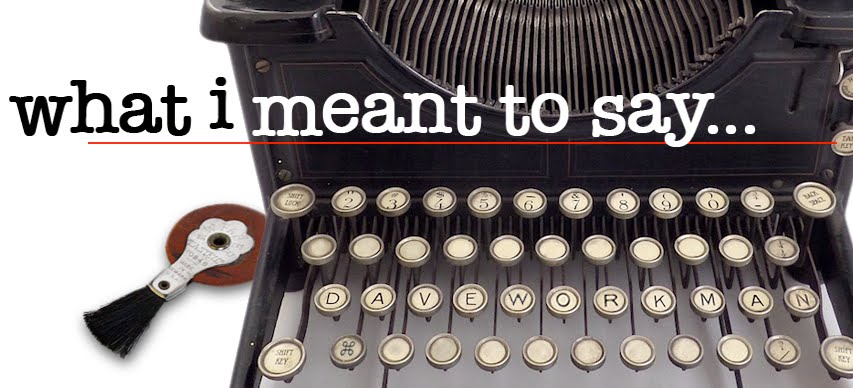As we looked for video ideas and production elements for this
Peculiar People series, it sadly reinforced via video websites and blogs that Christians are usually seen as jerks. And often rightly so.

Don Imus was a ticking cultural time bomb. I was embarrassed as a Caucasian that anyone would refer to another race in such a frankly stupid and demeaning way. And it doesn’t help that conservative (and considered by some, Christian) talk shows took a curiously defensive posture and threw up the “What about the rappers?” argument. Please.
I’m in a group of guys that is a combination of African-American and Caucasian pastors. What my black brothers have to hear on a regular basis from Christians breaks my heart. When white evangelical pastors and radio preachers push for a return to our “Christian roots” and to restore a “Christian Nation”, my African-American friends don’t get that excited.
Why? Hey, it wasn’t that great for
them.
When we make heroes in the church out of founding fathers like Washington and Jefferson (who clearly wrote racist comments about Africans, no matter whatever brilliant thoughts he had), both of whom held slaves, it’s easy to see why that’s not a dearly beloved picture to people of color. And I would suggest that however benignly we want to picture the “gentle slave-owner”, how can separating children from their parents, wives from husbands, a money-centered slave trade built on kidnapping (clearly an outlawed form of slavery in Exodus 21:16) and forcing people to do your work without pay be benevolent? I wouldn’t want to live like that.
John Wesley, in a letter to William Wilberforce, the driver behind outlawing slave trade in England in 1807, called American slavery, “the vilest that ever saw the sun.” Wesley wrote in one of his books: “When the vessels arrive at their destined port, the Negroes are again exposed naked to the eyes of all that flock together and the examination of their purchasers. Then they are separated to the plantations of their several masters, to see each other no more. Here you may see mothers hanging over their daughters . . . and daughters clinging to their parents, till the whipper soon obliges them to part. And what can be more wretched than the condition they then enter upon? Banished from their country, from their friends and relations for ever, from every comfort of life, they are reduced to a state scarce anyway preferable to that of beasts of burden.. . . . Did the Creator intend that the noblest creatures in the visible world should live such a life as this?”
Imagine if you were Jewish and having dinner at the Black Forest Restaurant with a friend and he suddenly said, “Boy, I wish Germany could return to the Golden Age of 1938. That’s when Christian Germany was at its peak.” Would that get you excited? Krystal Nacht was not a pleasant memory. And that was only the slippery slope.
I'm not anti-American or slamming the founding fathers. But they shouldn't be revered
in the Church...if even for the simple reason that we are to value healing and reconciliation as preference to one another.
Besides, any marriage of the State and the Kingdom of God is disastrous, both theologically and historically. The final government will be a theocracy, not a democracy. And Jesus won’t be checking the polls. You cannot marry a democracy and the Kingdom of God; you’ll end up with a mediocre Church. Look at the state churches in European countries where only 2-3% of the people attend. It doesn’t work. Political power is the bane of the Kingdom of God.

I think I’m fairly conservative socially, but why do Christians seem to excuse or even side with racist remarks…as in, “Yes, that was an awful thing to say. But what about hip hop artists?” Doesn’t that seem disingenuous to anyone? It seems incredibly sad that Christians are seen not just as conservative but mean-spirited and racist.
So what does this have to do with
peculiar people? Just this: we are people of God’s own possession. We aren’t of this world. We’re aliens and sojourners. Yes, we have a responsibility to be involved in the mechanics of this world. But we can’t be married to it. Peter calls us a “holy nation”. That means I have one primary allegiance: the new nation God is forming. A
holy nation set apart.
And it’s not of this earth.
Then Jesus answered, “I am not an earthly king. If I were, my followers would have fought when I was arrested by the Jewish leaders. But my Kingdom is not of this world.” John 18:36 (New Living Translation)
But you are a chosen generation, a royal priesthood, a holy nation, a peculiar people; that you should show forth the praises of Him who has called you out of darkness into his marvelous light: 1 Peter 2:9.
ps. The opening music to the message is a great tune by Mutemath called, naturally, Peculiar People. And for you music geeks out there, that’s the keyboardist and vocalist from the best overlooked band with one of the coolest CD’s of 2000: Earthsuit’s Kaleidoscope Superior. It was a classic.
 What are your thoughts?
What are your thoughts?


 Pretty cool Easter, eh? I don’t think I’ll ever get over the feeling of watching people make a decision to follow Jesus. I love when that happens.
Pretty cool Easter, eh? I don’t think I’ll ever get over the feeling of watching people make a decision to follow Jesus. I love when that happens.